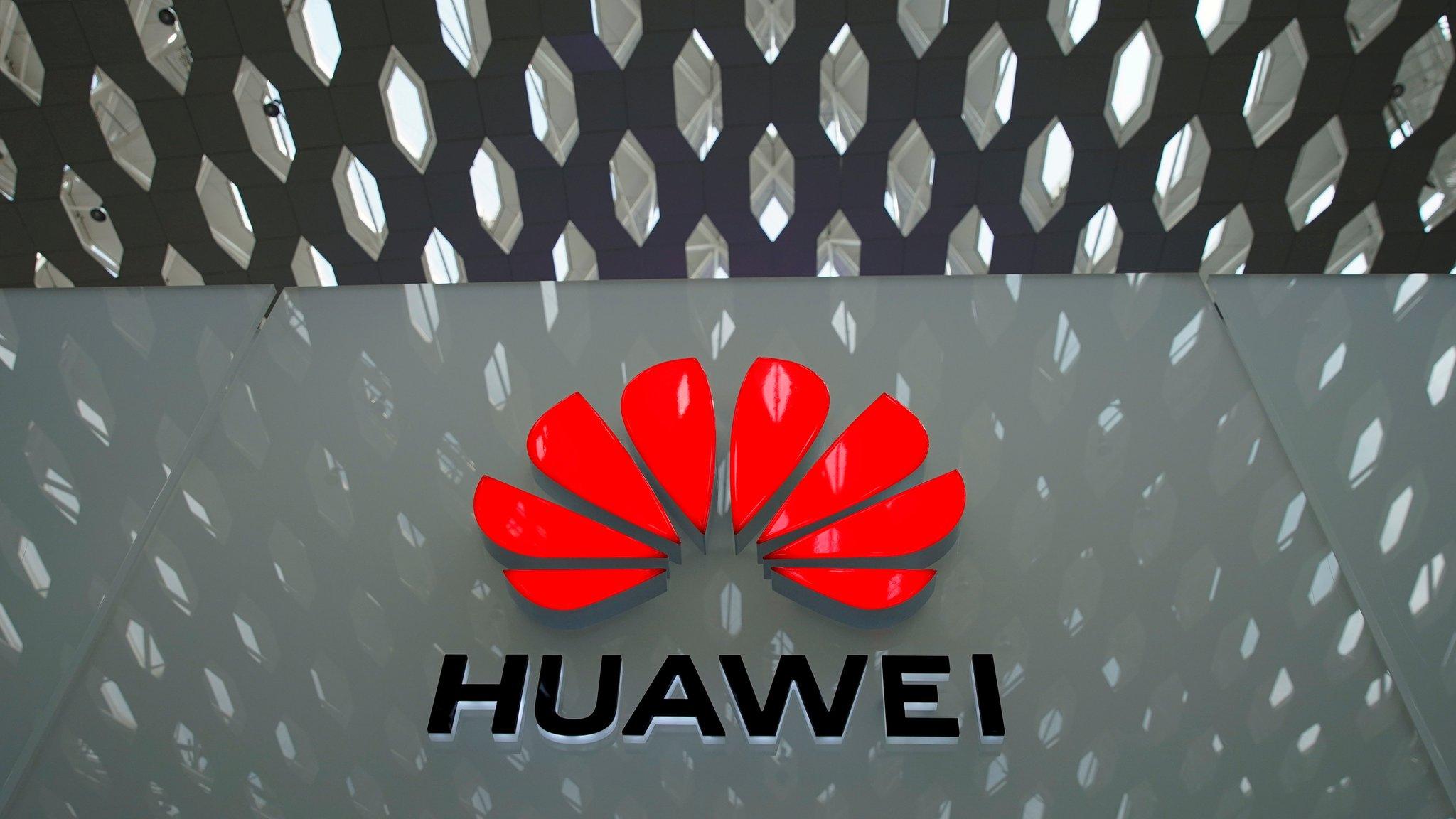Huawei: 'Survival is the goal' as it stockpiles chips
- Published
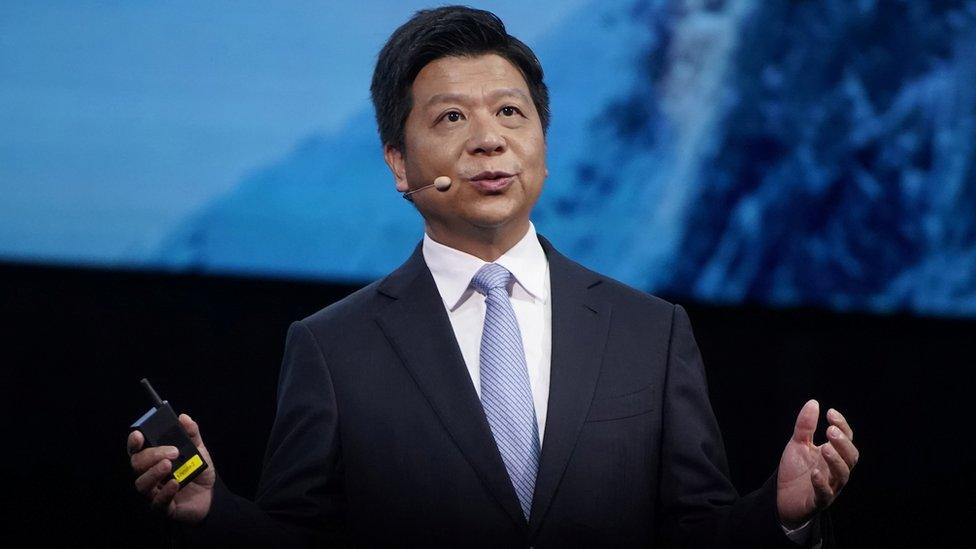
Guo Ping laid out the problems Huawei faced, at its annual conference
Huawei says it had to rush to stockpile chips ahead of the latest tightening of trade restrictions from Washington, which has hit its supply hard.
"Non-stop aggression from the US government has put us under significant pressure," Guo Ping, who chairs the company, said.
"Right now, survival is the goal."
The company urged the US to reconsider the rules, which make it difficult for Huawei to buy essential parts for products such as phones.
US President Donald Trump's administration has targeted a number of Chinese companies over alleged national-security issues - including:
hardware manufacturers such as Huawei
software providers TikTok and WeChat
Huawei, in particular, has been battling US restrictions in some form for two years.
And since 15 September, the company can no longer buy key chips from its manufacturers.
Speaking at Huawei's annual industry event, in Shanghai, Mr Guo said the change had "brought great challenges to our production and operation".
"In terms of the chips, in the middle of September, we just rushed to stockpile some," he told reporters.
Huawei said it had sufficient supplies to keep its business-to-business operations - such as 5G infrastructure - running smoothly.
But it is reportedly facing shortages in key parts for its smartphone business, where it remains one of the world's largest manufacturers.
Huawei is searching for new suppliers, with Mr Guo suggesting major chipmaker Qualcomm as a possible source - if it can get a licence from the US to supply them.
"If the US government allows it, we are still willing to buy products from US companies," he said.
Chip shortages are not the only problem Huawei is facing - it will now begin transitioning its phones to its own operating system, Harmony, instead of the widely used Android system.
China, meanwhile, remains deeply critical of the US action, accusing it of "naked bullying" of Chinese technology companies.
It views the allegations of national-security concerns as a smokescreen, alleging the restrictions are really an attempt to damage competition to US companies.
- Published10 September 2020
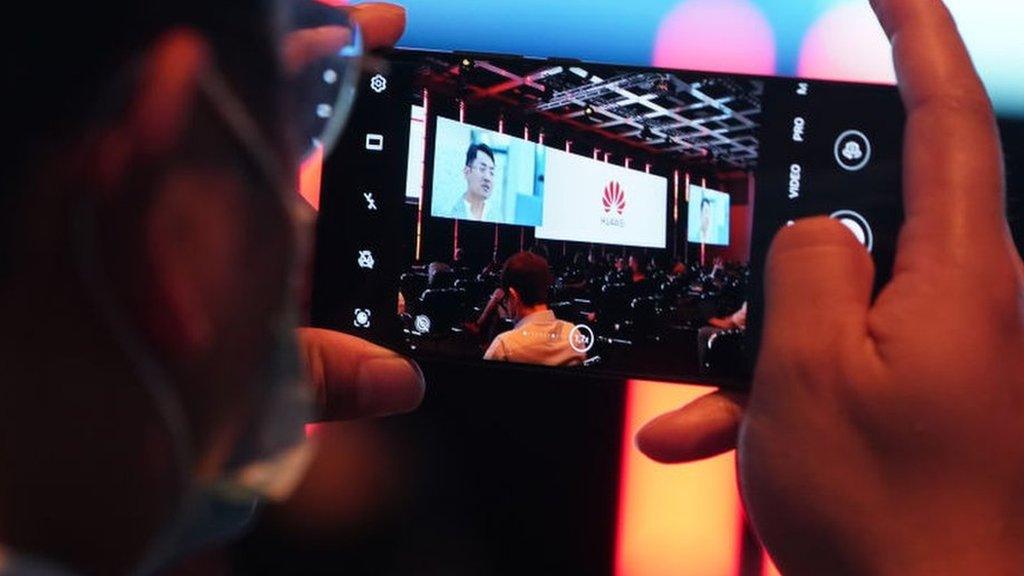
- Published8 September 2020
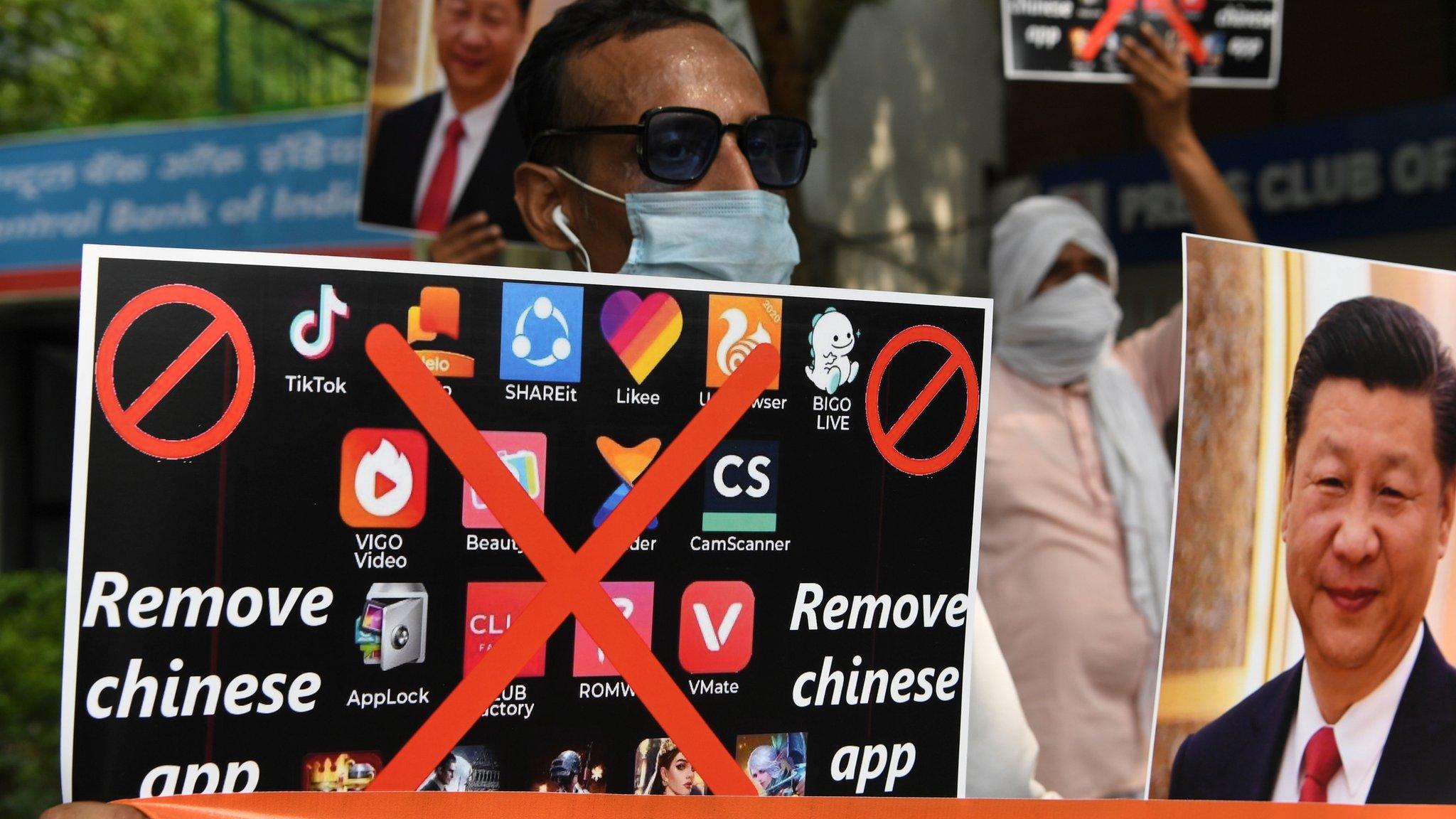
- Published30 July 2020
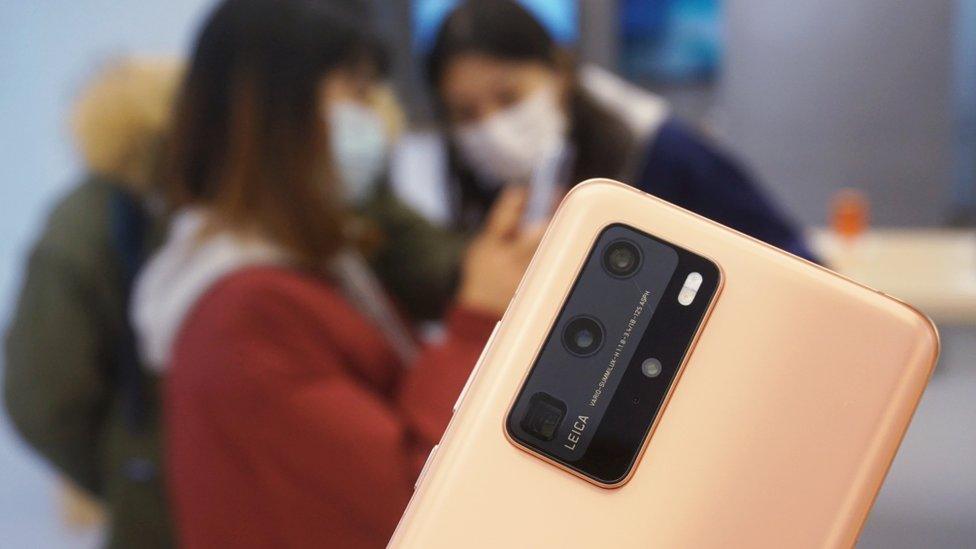
- Published17 August 2020
